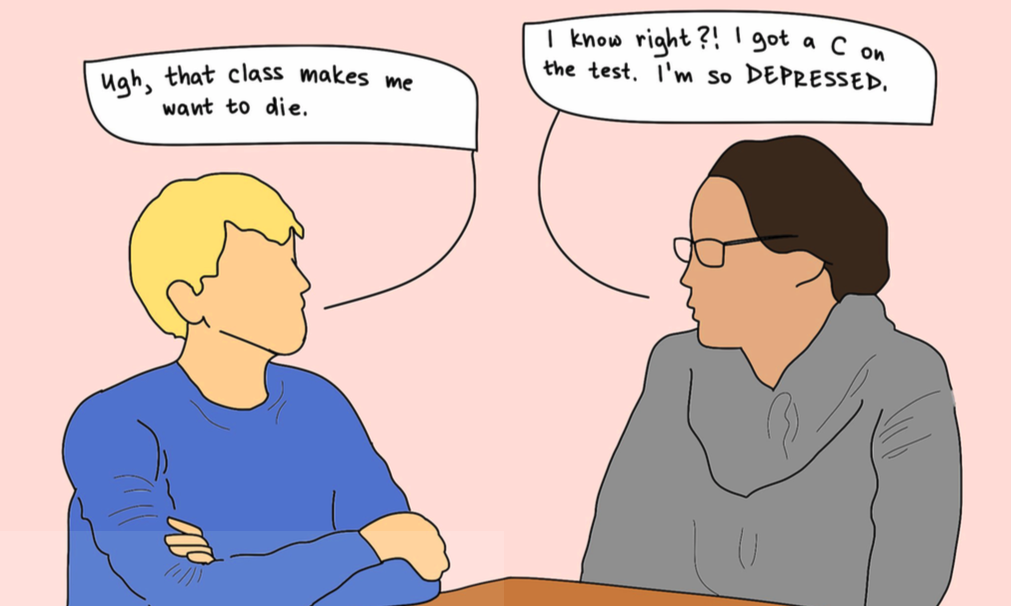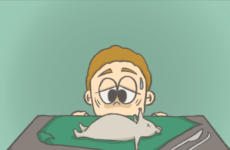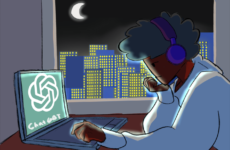
At Choate and elsewhere, suicidal talk pops up in everyday conversation over topics like classes and grades.
Although most of us welcome a good joke in casual conversation, certain humor crosses the line from being funny to being threatening. Though Choate advises its students to avoid using derogatory language, it is really up to the students to recognize the effects that their jokes have on the mental health of their peers. Comments about mental health issues should be taken seriously, yet some students disregard this in favor of lighthearted jokes that poke indirect fun at this issue.
Over time, modern-day society has embraced comments that trivialize important mental health issues. Interspersed within our day-to-day conversations are seemingly harmless comments intended to convey annoyance and not genuine suicidal thought:
“That test was so hard. Literally, shoot me.”
“I have so much homework; I think I’m going to kill myself.”
“Wow, you ate lunch without me? Die.”
These phrases can often be found online, too. Common abbreviations such as “KYS,” “KMS,” or “RIP” float about group chats and online forums—supposedly harmless expressions that unintentionally belittle death or suicide.
Although we may not immediately notice it, these comments undercut the real issue at hand. Though such phrases appear ubiquitous, we hardly realize the depth or seriousness they hold.
Why is death so casually ubiquitous within everyday conversation? More than anything, this points to a large disconnect between language and meaning. Instead of representing the serious mental health issues for which these comments should literally be employed, they are instead used to depict casual bouts of irritation. Though we might agree that no one who has used these phrases is actually encouraging suicide, it is nonetheless inappropriate to use them. Too often, we fail to recognize the severity of the things we say.
Suicide-slang isn’t the only issue. Aside from terms regarding suicide, phrases take their roots from other mental health issues that have emerged in society. On the surface, there seems to be nothing wrong with saying things like “Why does she always have to be so bipolar?” or “I’m so depressed because all my friends are off-campus” or “I’m going to have a panic attack when I take this test.”But because we have grown accustomed to hearing these on a regular basis, most of us seem to forget or disregard that each of these phrases draws their roots from real mental health problems. From even the most superficial standpoint, it should seem abnormal that we claim a medical episode if we are merely taking a test, or that we diagnose someone with a severe mental disorder without substantial evidence.
According to a Vice article on the casual degradation of these mental health terms, it sometimes becomes a matter of whether or not mental health illnesses are correctly identified. Because it’s harder to diagnose a mental health problem on the surface level, it is convenient to conflate other emotional problems with mental health. I recently came to understand that depression and simply feeling sad are very different. Depression is a clinically diagnosed condition, and we all, depressed or not, feel sad from time to time.. However, because both are ‘all in our head,’ it becomes challenging to tell the difference between the two. Thus, mental health illnesses are constantly being re-appropriated to mean things they were not originally intended to mean.
In order to pay due respect to those suffering from mental health problems, we must change the words and phrases we throw around on a daily basis. In order to do that, we must first re-wire the attitude in which we approach issues such as mental illness or death. Yes, this is a matter of what we say, but more important, it’s about how we think. Though these small details may seem nitpicky to some, to others this really could be a matter of life or death.




